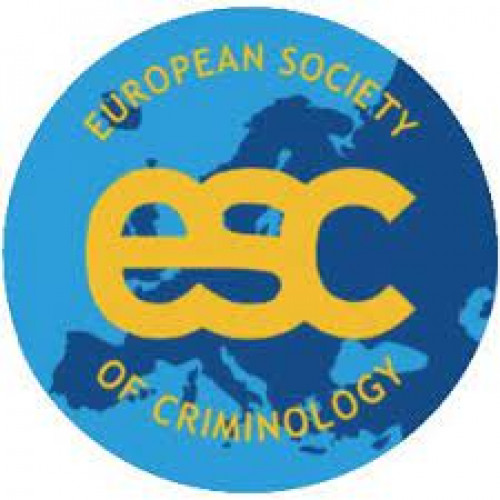2025 ESC Awards: nominations sought!

ESC European Criminology award
The ESC European Criminology Award is given every year to a European criminologist with a significant
life- time contribution to European criminology. Nominations should be forwarded to the Executive Secretary (marcelo.aebi@unil.ch) of the ESC and to the Newsletter Editor (rfaria@direito.up.pt) by 31 January. They must include: (1) a letter of nomination explaining why the nominee’s work warrants recognition, and (2) the nominee’s curriculum vitae. The nominees must not be current members of the ESC Board or have been members of such Board during the 3 years preceding the year of the award.
ESC Young Criminologist Award
The ESC Young Criminologist Award recognises an outstanding article by a European criminologist who was 35-years-old or younger when the article was published. The nominee must be the sole author of an article on a criminological topic published in a peer-reviewed journal in a European language within the three calendar years preceding the year of the proposed award. If the article was published Early Access (for example, as online first), the three-year period begins the year of the online publication.
Nominations should be forwarded to the Executive Secretary (marcelo.aebi@unil.ch) ESC and to the Newsletter Editor (rfaria@direito.up.pt) by 31 January and include: (1) a letter of nomination explaining why the nominee’s work warrants recognition, (2) the nominee’s curriculum vitae, (3) a copy of the original article (only one article per nominee can be proposed each year), (4) if the article is published in a language other than English, a translation of the article into English, and (5) a description of the journal in which the article was published, including a description of its peer-review process.
ESC Early Career Award
The ESC Early Career Award recognises the outstanding scientific achievement of an early career European criminologist. The term ‘early career’ means less than ten years since the successful PhD’s defence, plus any eligible career breaks (such as maternity or paternity leave or the long-term illness of the candidate or a close family member). To demonstrate eligibility, the specific circumstances of a career break need to be properly documented.
The main criterion for recognizing ‘outstanding scientific achievement’ consists of a series of high- quality publications (such as articles in a peer- reviewed journals or monographs published by an academic publisher), some but not all of which can
be co-authored. In addition, the jury can take into consideration the candidate’s proven impact on public debates, laws, policy documents or practices.
The nominees must be members of the ESC. They must not be current members of the ESC Board or have been members of such board during the 3 years preceding the year of an award.
Nominations should be forwarded to the Executive Secretary (marcelo.aebi@unil.ch) of the ESC and to the Newsletter Editor (rfaria@direito.up.pt) by 31 January and include (1) a letter of nomination explaining why the nominee’s work warrants recognition, and (2) the nominee’s curriculum vitae.
ESC Book Award
The ESC Book Award recognises the author(s) of a book that represents an outstanding contribution to the further development of European criminology.
To be eligible for the Award, the monograph or book must have been published by an academic publisher within the three calendar years preceding the year of the proposed award. Anthologies and/or edited volumes will not be considered for this Award. Sole or multi-authored monographs or books may be nominated but only one Award will be given to be shared amongst all authors.
Nominations can only be made by individuals who are members of the European Society of Criminology. They should be forwarded to the the Executive Secretary (marcelo.aebi@unil.ch) of the ESC and
to the Newsletter Editor (rfaria@direito.up.pt) by
31 January and include: (1) a letter of nomination explaining why the book warrants recognition, (2) the nominee’s curriculum vitae and (3) three hard copies of the book (to be sent to the Executive Secretariat).
Distinguished Services to the ESC Award
This award recognises outstanding service contributions to the effective functioning of the European Society of Criminology. The nominees must not be current members of the ESC Board or have been members of such Board during the 3 years preceding the year of the award.
Nominations should be forwarded to the Executive Secretary (marcelo.aebi@unil.ch) of the ESC and to the Newsletter Editor (rfaria@direito.up.pt) by
31 January and include: (1) a letter of nomination explaining why the nominee’s work warrants recognition, and (2) the nominee’s curriculum vitae.
For all situations, the term ‘criminologist’ refers to persons currently or formerly ‘engaged in research, teaching and/or practice in the field of criminology’ and Criminology refers to all scholarly, scientific and professional knowledge concerning the explanation, prevention, control and treatment
of crime and delinquency, offenders and victims, including the measurement and detection of crime, legislation and the practice of criminal law, and law enforcement, judicial, and correctional systems’.
More information here.
